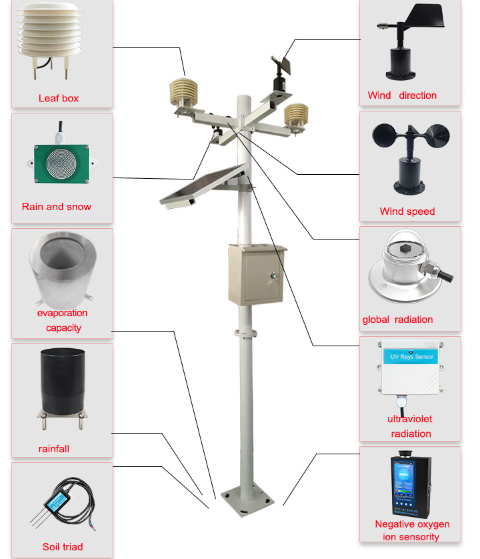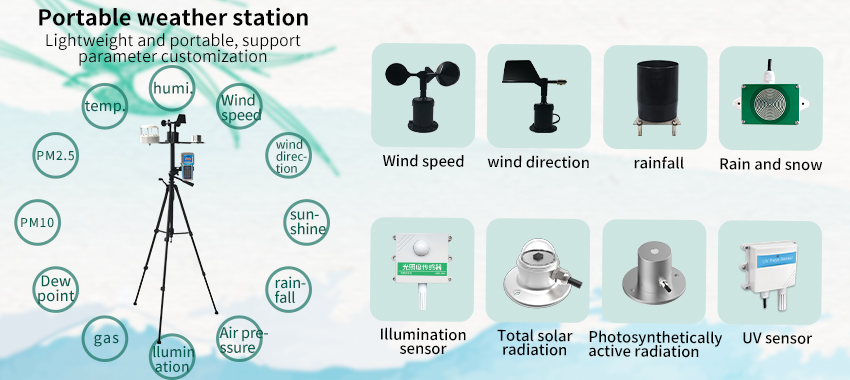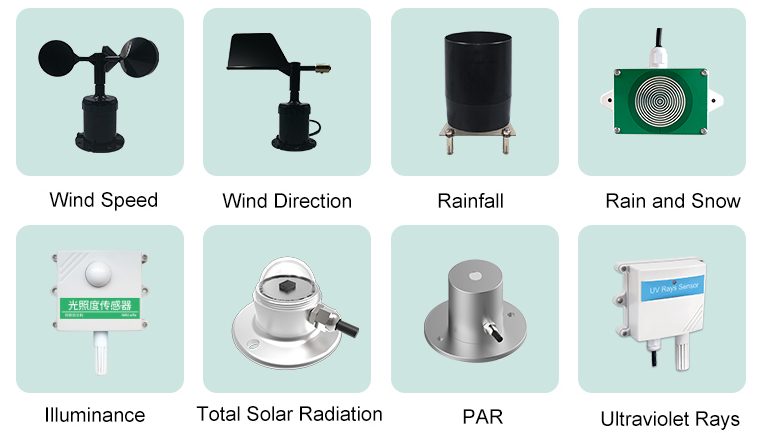In the age of technology, the world is becoming increasingly interconnected, with advancements in sensors playing a pivotal role in our understanding of natural processes. One such field where sensors are revolutionizing our comprehension is weather monitoring, specifically through weather sensors. These sensors, through their ability to collect and transmit data on a range of weather parameters, are not only enhancing our understanding of atmospheric phenomena but also enabling more precise decision-making in various industries, particularly agriculture.
The role of weather sensors

The agricultural sector, which is affected by weather factors, benefits greatly from sensor data. Farmers can now make decisions about when to plant, irrigate and harvest based on real-time weather information.Thus, more sustainable and efficient agricultural practices.
Identify patterns in weather patterns
With the help of weather sensors, farmers can identify patterns in weather patterns over time. This long-term data allows them to prepare for upcoming seasons . This proactive approach can significantly reduce the impact of unfavorable weather conditions on crops, leading to higher yields and fewer losses.
Optimize their water usage

Furthermore, through the use of weather sensor, farmers can optimize their water usage. By precise monitoring of rainfall, soil moisture, and evapotranspiration rates, farmers can determine the exact amount of water required by their crops. This not only ensures that the plants receive adequate water but also prevents over-irrigation, which can lead to waterlogging and subsequent crop damage.
Air quality monitoring
The role of weather sensors extends beyond agricultural applications. In the realm of environmental monitoring, these sensors provide crucial data on air quality, atmospheric composition, and even the health of ecosystems. By tracking pollutant levels, weather sensors contribute to our understanding of how human activities impact air quality. This information is crucial for identifying potential health hazards and devising effective mitigation strategies.
Role in meteorological research
Weather sensors also play a crucial role in meteorological research. By providing high-resolution data on temperature, wind speed and direction, humidity, and other meteorological variables, these sensors enable meteorologists to build more accurate weather models. These models, in turn, improve short-term weather forecasting, which is essential for planning daily activities and making informed decisions in various industries.
Understand long-term climate change
Moreover, the data collected by weather sensors aids in understanding long-term climate change patterns. By analyzing trends in temperature, precipitation, and other climate variables over extended periods, scientists can gain insights into the causes and potential impacts of climate change. This information is crucial for formulating policies aimed at mitigating the effects of climate change and adapting to a changing environment.
Conclusion
In conclusion, weather sensors have the potential to revolutionize our understanding and management of both the agricultural sector and the environment. Their ability to provide precise and real-time data on a range of weather parameters enables more informed decision-making in agriculture, leading to more sustainable and efficient practices. In environmental monitoring, they contribute to our understanding of air quality and ecosystem health, aiding in the identification of potential health hazards and the development of mitigation strategies. Weather sensors also play a crucial role in meteorological research and climate change studies, providing valuable insights into long-term weather patterns and climate change trends. As technology continues to advance, we can expect even more precise and comprehensive data from these sensors, further enhancing management of the natural world.
